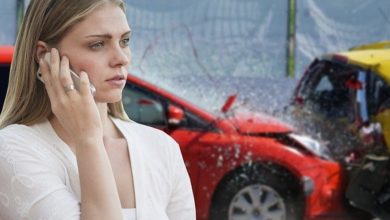Jamaican Government strengthening police forensic skills to increase arrests
KINGSTON, Jamaica – The Jamaican Government is pumping resources into efforts to strengthen the police’s forensic investigation capabilities as the country attempts to find a solution to the spiraling crime problem.
The aim is to improve the police’s ability to gather and provide scientific evidence, which can be presented in a court, to increase apprehensions.
The move comes from a 2006 review, which recommended a revamping of the Jamaica Constabulary Force’s (JCF) crime scene investigation programme.
According to Assistant Commissioner of Police (ACP), Les Green, the review indentified a number of key areas for improvement including boosting skills and training and the provision of technology and equipment.
“So, we implemented the findings of the review and we’ve been running our training programme since 2006, where we’ve brought in an international consultant to bring up the forensic capability of the police force,” he informs, noting that the Government, with the support of international partners, has “invested very heavily” in resources, equipment and the training.
Already, two officers have been certified by the United States-based International Crime Scene Investigators Association, while 56 others have been trained and are to receive similar accreditation.
“Part of our ongoing programme is that, basically, we’re looking to have all of our senior crime officers upgraded to forensic crime scene investigators with an international qualification. We’ve identified the (accreditation) board to go through and we’ve now trained 58 officers to this level. The first two have been awarded their international accreditation, the other 56 are about to be awarded once they’ve submitted their final evidence to obtain that certification.but they are already trained to that standard,” he tells JIS News.
ACP Green, who is head of the Serious and Organised Crime Branch, tells JIS News that the plan is to have, within the next three years, 300 internationally accredited crime scene investigators, who will meet the needs of police stations islandwide.
He notes that already, there is “significant improvement in our forensic capability and in the next few months and years, you’ll see more cases coming before the courts with valuable corroborating forensic evidence to help us with securing convictions.”
Forensic science refers to a method of obtaining criminal evidence for the use in a court of law.
Directly related to forensic science is crime scene investigation, which entails the collection, identification, documentation, and preservation of physical evidence left at the scene of a crime, with the ultimate goal of presenting a court with evidence to identify and apprehend a perpetrator.
Crime scene investigation is used all over the world to solve some of the most heinous crimes.
Detective Inspector Cecil Clarke, one of the two internationally accredited crime scene investigators, explains that his role entails visiting crime scenes to collect all forensic evidence including fingerprints, handwriting, and shoe impressions. “We have DNA (deoxyribonucleic acid), which is blood samples; there is also perishable fragile evidence that has to be photographed, so photography is an essential component of forensic crime scene investigations,” he points out.
Detective Inspector Clarke has been conducting investigations for close to 30 years, and although he supervises crime scenes from time to time, his major duty is to administer training at the JCF’s Criminal Investigation Training Institute.
He says the JCF’s efforts to bolster its forensic investigation capabilities include a mentorship programme “where young assistant crime scene investigators are brought into the system and are trained.”
They are sent back into the field for a six-month period where they are monitored and an assessment made of their performance on the scene by their mentors, who are trained forensic crime scene investigators, he tells JIS News.
According to the Detective, Jamaica’s crime scene investigation landscape has changed over the years, especially with the advent of DNA evidence.
“A person can be identified by his DNA profile, which cannot be replicated or duplicated by anyone else,” he says, noting that once the potential evidence is collected from crime scenes, it is sent to the government forensic laboratory to be processed, and in many cases, will then be used in court, as circumstantial evidence.
While much more needs to be done to improve Jamaica’s forensic investigation capabilities, especially as it regards the creation of a world-class forensics laboratory, Detective Clarke notes that things are moving in the right direction.
He says that the JCF’s investigation programme continues to grow, with more and more officers expressing a desire to be trained as crime scene investigators.



